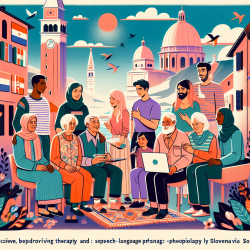The concept of post-traumatic growth (PTG) offers a new perspective on the recovery process for polytraumatized patients. This phenomenon describes positive personal development following severe physical or mental distress. The study "Post-traumatic growth in polytraumatized patients after 20+ years: a long-term follow-up study of 337 patients treated at a level 1 trauma center" provides valuable insights into how PTG manifests over time and offers guidance for practitioners aiming to enhance their therapeutic approaches.
The Study's Key Findings
The study involved 337 patients who experienced polytrauma between 1971 and 1990. Twenty years later, these individuals reported significant improvements in various aspects of their lives. Notably, 96.5% of participants observed positive changes in at least one area assessed by the study's questionnaire.
- Improved Relationships: Approximately 29.2% of patients reported enhanced relationships with others.
- Appreciation of Life: A notable 36.2% expressed a greater appreciation for life.
- New Possibilities: About 32.5% noticed a shift in their attitudes towards new opportunities.
The study also identified specific demographics as predictors of PTG. Older age, female gender, being married, and higher injury severity were linked to greater expressions of PTG.
Implications for Practitioners
The findings of this study highlight the importance of recognizing and fostering PTG in clinical practice. Here are some ways practitioners can implement these insights:
- Cultivate Social Support: Encourage patients to build strong support networks. Social connections play a crucial role in facilitating PTG.
- Focus on Personal Strengths: Help patients identify and leverage their strengths to cope with trauma-related challenges.
- Promote Resilience: Develop interventions that enhance resilience, enabling patients to adapt positively to adversity.
- Acknowledge Individual Differences: Tailor therapeutic approaches based on patient demographics such as age, gender, and marital status.
The Role of Further Research
This study underscores the need for continued research into PTG among polytraumatized individuals. By exploring the underlying mechanisms and factors influencing PTG, researchers can develop more effective interventions that promote long-term recovery and well-being.










